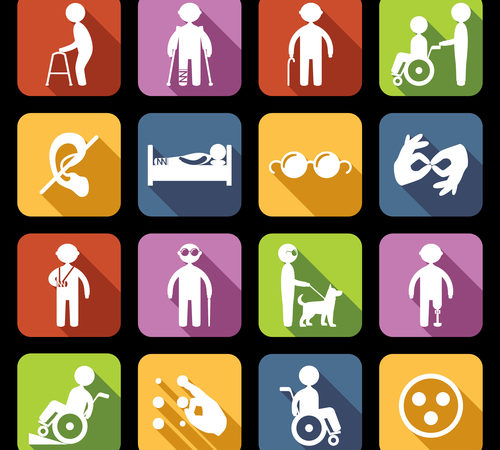
The Stigma of Disability
No Matter whether physical, mental or social
“Roughly one in five Americans lives with a disability”.
Have you heard about this? In Chicago1, “A group of young people kidnapped, bound, beat, slashed, gagged, humiliated and threatened to kill a teenager with mental disabilities over nearly three days, and laughed about it as they carried out their acts”.
“But by far, the most unusual thing about the episode, advocates for people with disabilities have said, was not the abuse itself, but the fact that it was recorded. Violence against people with disabilities is far more common than most people realize, advocates have said, and frequently goes undetected or is not taken seriously”.
“The victim in the attack here, an 18-year-old man, suffered from schizophrenia and attention deficit disorder, prosecutors said in court papers filed on Friday”.
“People with disabilities are more than twice as likely to be the victims of violent crimes as those without disabilities, according to a Justice Department report based on Census Bureau surveys. And people with mental disabilities are the most likely to be victimized”.
Another disability:
Joseph P. Carter2, “I stutter. No matter the situation, the familiarity of speech appears to me in anxiety-filled moments that I’ve come to predict with almost scientific precision. Speech is such an uncanny phenomenon for me. I’m never at home with my stuttering; I feel ashamed on a daily basis. I am conspicuous.
Rosemarie Garland-Thomson3, “We asked readers to share their own stories in the comments and on Facebook”.
Here are excerpts:
Making Change
Samantha, “I was diagnosed with a degenerative disability early in life, but appeared able-bodied and mostly “fit in” — physically, at least. As an adult, I became a wheelchair user, and the world changed around me. It took me a long time to find my tribe and acknowledge my disability identity — I now proudly identify as crip, and fight for the rights of my fellow crips.
It surprised me how sitting down and using a mobility aid changed the way others viewed me. I’d gone from being a well-regarded professional to a marginalized and oppressed member of a minority group”.
“The comments here show how far we have to go”.
Sympathy? Wrong.
DS of San Francisco, “One assumption is that we are looking for sympathy. Wrong. Take your pity, sympathy and the inspiration you get from our “brave fight” someplace else”.
I Would Proudly Live This Life Again
Erin of New Jersey, “Growing up, I was one of the only visibly disabled people in my public grade school and high school. Since my friends were all abled, as is my family, I never considered “disabled” as an identity. Thanks to the annual M.D.A. telethons, I thought disability was something to be ashamed of, or a weakness — that everyone with a disability wanted to be fixed, and that wasn’t me at all. I loved who I was, and had pride in my identity even if I didn’t recognize it in that way”.
Pride and Psychiatric Illness
Bffishe of Columbia, S.C.,” I would say that, if we’re thinking specifically about psychiatric disabilities, there is no “pride movement” because of the shame and stigma that still exist around psychiatric illnesses (and other disabilities). I mean, who wants to be visible when so many still think of depression/bipolar as character flaws and when illnesses like schizophrenia and schizoaffective disorder are so pathologized, even criminalized?”
Garland-Thomson4., “This impulse to rescue people with disabilities from a discredited identity, while usually well meaning, is decidedly at odds with the various pride movements we’ve come to know in recent decades”. “Slogans like “Black Is Beautiful” and “We’re Here, We’re Queer, Get Used to It!” became transformative taunts for generations of people schooled in the self-loathing of racism, sexism and heterosexism. Pride movements were the psycho-emotional equivalents of the anti-discrimination and desegregation laws that asserted the rights of full citizenship to women, gay people, racial minorities and other groups. More recently, the Black Lives Matter and the L.G.B.T. rights movement have also taken hold”.
“Yet pride movements for people with disabilities — like Crip Power or Mad Pride — have not gained the same sort of traction in the American consciousness. Why? One answer is that we have a much clearer collective notion of what it means to be a woman or an African-American, gay or transgender person than we do of what it means to be disabled”.
Stigmatized? Anxious? We at Counseling on Demand5 can support not only the disabled in their quest, but those who view them.
We are online at CounselingonDemand.com
We are only a click away.
- MITCH SMITHand RICHARD PÉREZ-PEÑA, Beating of Disabled Teenager Highlights a Crime That Often Goes Unpunished, NY Times, JAN. 6, 2017
- Joseph P. Carter, nytimes.com/2016/12/20/opinion/the-everyday-anxiety-of-the-stutterer
- Rosemarie Garland-Thomson,nytimes.com/2016/08/25/opinion/what-disability-means, Rosemarie Garland-Thomson teaches English and bioethics at Emory University, where she is a founding director of the Disability Studies Initiative.
- Rosemarie Garland-Thomson, Becoming Disabled (Roughly one in five Americans lives with a disability. So where is our pride movement?) DISABILITY, nytimes.com AUG. 19, 2016
- Matthew Hunt, http://www.counselingondemand.com/counseling/mental-health-stigma-begone-6-helps/